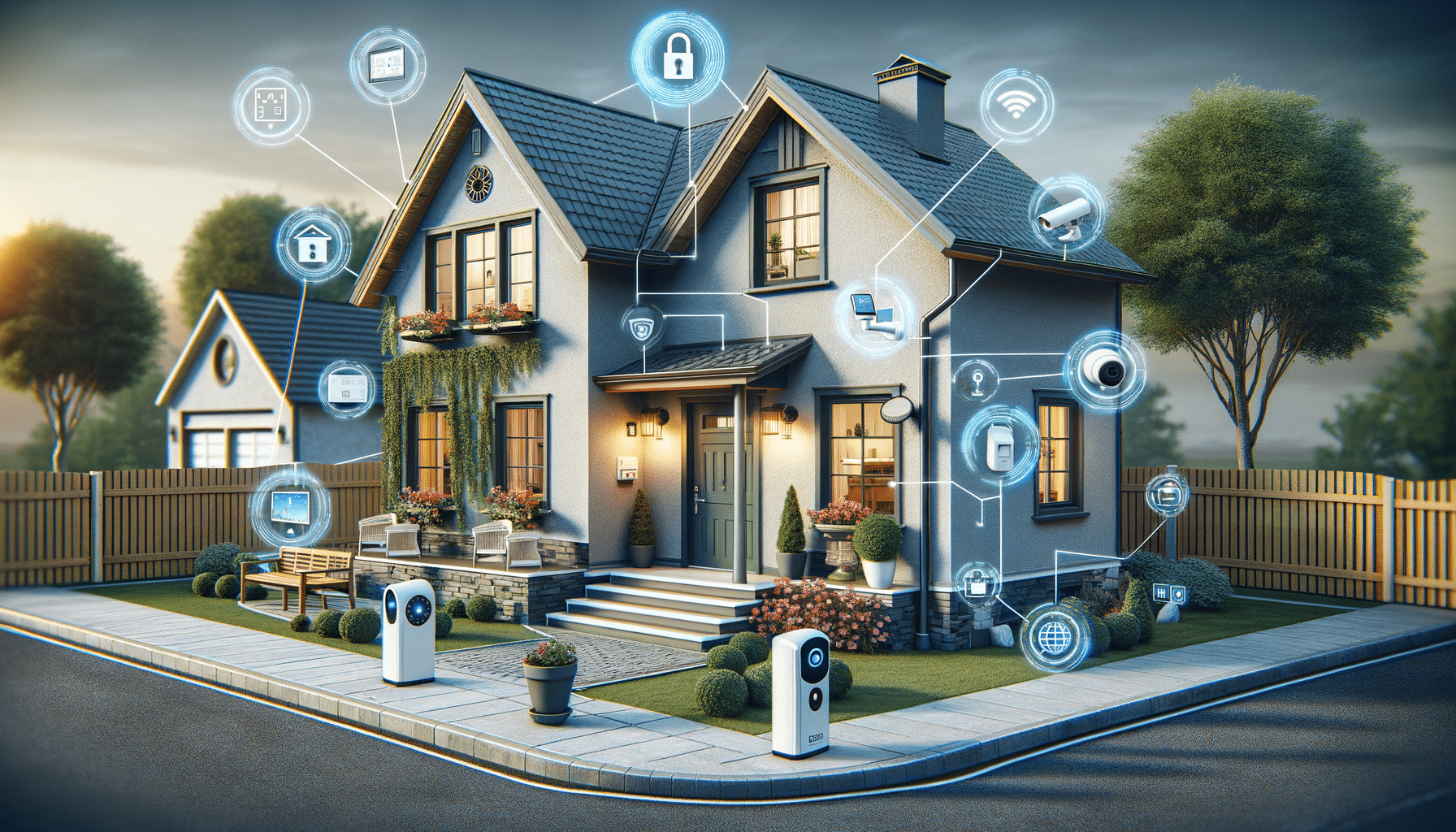
How Smart Home Security Can Protect Your Home
Introduction to Smart Home Security
In an era where technology is seamlessly integrated into our daily lives, the concept of home security has evolved significantly. Smart home security systems offer cutting-edge solutions that not only enhance safety but also provide peace of mind. These systems are designed to be intuitive, offering homeowners a comprehensive approach to safeguarding their properties. This article explores the various facets of smart home security, highlighting its importance and the innovative features it brings to the table.
The Evolution of Home Security
Home security has come a long way from traditional locks and keys. The advent of technology has revolutionized the way we protect our homes. Early security systems were rudimentary, often involving simple alarms that alerted homeowners to intrusions. However, as technology advanced, so did the sophistication of security systems. Modern smart home security systems integrate various technologies, including sensors, cameras, and artificial intelligence, to provide a multi-layered defense mechanism.
One of the most significant advancements is the ability to monitor and control security systems remotely. Through smartphone apps and web interfaces, homeowners can receive real-time alerts and even view live footage from security cameras. This level of connectivity ensures that homeowners are always aware of what is happening at their property, regardless of their physical location.
Moreover, the integration of artificial intelligence has enabled smart systems to learn and adapt to homeowners’ routines, minimizing false alarms and enhancing overall efficiency. As we continue to embrace technological advancements, the future of home security looks promising, with continuous improvements in features and capabilities.
Key Features of Smart Home Security Systems
Smart home security systems are equipped with a variety of features designed to enhance safety and convenience. Some of the standout features include:
- Real-time Alerts: These systems can send instant notifications to homeowners’ devices, informing them of any unusual activity.
- Remote Monitoring: Homeowners can access live footage from security cameras via their smartphones or computers.
- Automated Systems: Many systems offer automation features, such as turning on lights or locking doors, based on specific triggers.
- Integration with Smart Devices: Smart security systems can often be integrated with other smart home devices, creating a cohesive and interconnected environment.
These features not only enhance the security of a home but also add a layer of convenience that traditional systems cannot offer. By leveraging these advanced features, homeowners can ensure a higher level of protection for their families and belongings.
Benefits of Implementing Smart Security Solutions
Implementing a smart home security system offers numerous benefits beyond just protecting against intrusions. Firstly, it provides homeowners with peace of mind, knowing that their property is continuously monitored. The ability to receive real-time alerts and access live footage ensures that homeowners are always informed about the status of their home.
Additionally, smart security systems can contribute to energy savings. By integrating with other smart home devices, such as thermostats and lighting systems, homeowners can optimize energy usage based on their routines. This not only reduces energy bills but also minimizes the environmental impact.
Moreover, smart security systems can increase the overall value of a property. Homes equipped with advanced security solutions are often more attractive to potential buyers, as they offer enhanced safety and convenience. As a result, investing in a smart home security system can be a wise decision for homeowners looking to increase their property’s market value.
Choosing the Right Smart Home Security System
With a plethora of options available, selecting the right smart home security system can be a daunting task. However, by considering a few key factors, homeowners can make an informed decision. Firstly, it’s essential to assess the specific needs of the household. This includes evaluating the size of the property, the number of entry points, and any unique security concerns.
Next, homeowners should consider the features offered by different systems. While some systems provide basic monitoring, others offer a wide range of advanced features, such as facial recognition and voice control. It’s crucial to choose a system that aligns with the homeowner’s security requirements and budget.
Finally, ease of use and customer support are critical factors to consider. A user-friendly interface and reliable customer service can significantly enhance the overall experience of using a smart home security system. By taking these factors into account, homeowners can choose a system that provides optimal security and peace of mind.
Conclusion: Embracing the Future of Home Security
As technology continues to advance, the landscape of home security is rapidly evolving. Smart home security systems offer a comprehensive and innovative approach to safeguarding properties, providing homeowners with unparalleled peace of mind. By embracing these advanced solutions, homeowners can ensure their homes are well-protected against potential threats.
In conclusion, the integration of technology into home security systems has transformed the way we protect our homes. With features such as real-time alerts, remote monitoring, and automation, smart security systems offer a level of convenience and safety that traditional systems cannot match. As we move towards a more connected future, investing in a smart home security system is a step towards ensuring a safe and secure living environment.


